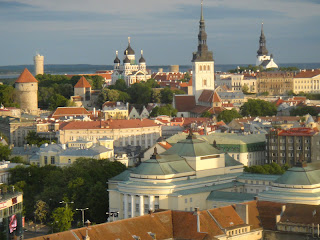Last 25 to 27 June, the european Economic and Social Committee and the Civic chamber of the russian Federation
had in Moscow their 5 th Joint Meeting.
As in two of the previous editions, i had the honor to participate as a Member of the European Delegation.
Under the leadership of our finish Colleague Fillip Amro-Drotz, we achieved to some very well succeeded conclusions
like to include in the agenda of our next joint meeting one point concerning the Human Rights in Russia.
As well, so important as this, was the statement about the new laws about free right of meeting in Russia.
This declaration in which the mentioned considerations were included, was signed by both parts, the Presidents of the European Delegation and the Russian Civic Chamber. _____________________________________________________________
" Moscow, 25-26 June 2012
Declaration
 Cooperation between the European Economic and Social Committee (EESC) and the Civic Chamber of the Russian Federation (CCRF) is being pursued in the framework of the Memorandum of Understanding signed in 2008 with a view to establishing regular contacts between the two Parties and fostering the exchange of information and expertise in order to acquire a better understanding of the political, economic and social situation in the EU and Russia and contribute to people-to-people contacts and mutual understanding.
Cooperation between the European Economic and Social Committee (EESC) and the Civic Chamber of the Russian Federation (CCRF) is being pursued in the framework of the Memorandum of Understanding signed in 2008 with a view to establishing regular contacts between the two Parties and fostering the exchange of information and expertise in order to acquire a better understanding of the political, economic and social situation in the EU and Russia and contribute to people-to-people contacts and mutual understanding.
This fifth joint workshop, organised by the EESC and the CCRF, was held in Moscow in the presence of Staffan Nilsson, President of the EESC and Evgeniy Velikhov, President of the CCRF. At this meeting, participants from both sides discussed the latest developments in the EU-Russia Partnership for Modernisation and the negotiations on the New EU-Russia Agreement, the improvement of people-to- people contacts, public health, food safety and rural development.
The participants agreed on some conclusions from which we can underline:
- We ask that the new EU-Russia Agreement cover all aspects of EU-Russia relations, including trade, investment and energy. We look forward to the implementation of the commitments made by Russia during the WTO accession process. We are convinced that enhancing trade and industrial cooperation by means of even greater harmonisation and/or mutual recognition of technical regulations and standards, specific provisions for trade in green products and services, transparent implementation of competition rules and appropriate commercial risk reduction and increased protection for investors will contribute to further growth of the EU and Russian economies and call for job creation to be the main focus of this cooperation.
- In order to meet the important challenges facing both Russia and the EU in the coming years, the EESC and the CCRF have stepped up their cooperation on issues of major international importance, including sustainable development and the economic crisis. Civil society representatives from the other BRICS countries have been involved in this work with a view to presenting a global civil society position. We reiterate the main recommendation of the resulting proposal, namely the need to commit to a concrete action plan that provides for policy tools for sustainable development action.
- We consider that a vibrant and active civil society, including the economic and social partners, has an instrumental role to play in fostering democracy and human rights, developing political institutions, protecting the environment and people-to-people contacts. To this end, respect for freedom of expression and assembly and independent media play an essential role in developing a credible and constructive civil society. We demand that legislation governing public rallies guarantees such fundamental freedoms in all our countries.
- We agree to organise the next seminar in Brussels in 2013 and to include subjects related to human rights and trade following Russia's WTO accession amongst the possible topics for discussion.
- We welcome the progress made by the EU and Russian authorities on visa liberalisation and consider that visa-free travel would facilitate contacts between EU and Russian businesses, researchers, students and citizens.
- We call for specific provisions related to civil society to be included in the upgraded EU-Russia Visa Facilitation Agreement.
- We consider that active work on the implementation of the Common Steps towards visa-free travel is essential to improve people-to-people contacts. Civil society involvement, in particular in the formulation and implementation of migration policies oriented towards successful integration of migrants in the host societies, could be a particularly successful way of reducing migration pressure both in the EU and in Russia.

- We recognise that strengthening contacts between young people is of the utmost importance for developing mutually beneficial cooperation and achieving modernisation goals. Therefore, we call for increased participation of universities, students and academics in the Erasmus Mundus, Tempus, Marie Curie and Jean Monnet programmes.
This declaration will be submitted to the political authorities of the European Union, its Member States and the Russian Federation. "
























